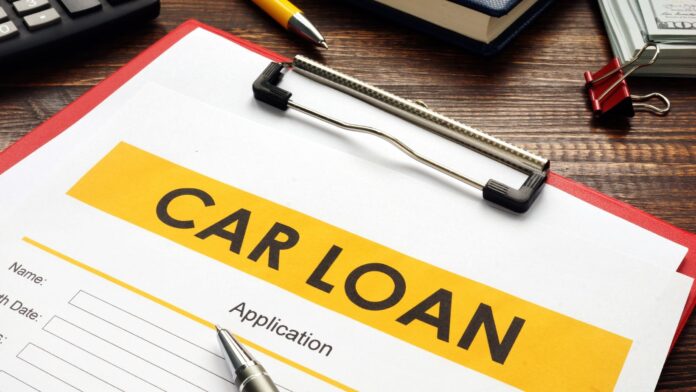Does Your Cosigner Have to be Present when You Buy a Car
Before cosigning for a car loan, there are several important questions to consider. One such question is whether your cosigner needs to be present when you buy the car. This is a common concern that many people have, and it’s important to understand the implications before making any decisions.
The answer to this question can vary depending on the specific circumstances and the requirements of the lender. In some cases, having your cosigner present at the time of purchase may be necessary, as their signature may be needed on certain documents. However, in other situations, it may not be required for them to be physically present.
Cosigning for a car loan is a significant financial responsibility, and it’s crucial to gather all the necessary information before making such a commitment. By asking the right questions, you can protect yourself and make an informed decision. Here are some key reasons why asking questions before cosigning is essential:
- Understanding the borrower’s financial situation: Before agreeing to become a cosigner, it’s important to have a clear understanding of the borrower’s financial standing. Asking about their income, credit history, employment stability, and existing debts can provide valuable insights into their ability to repay the loan. This information will help you assess whether they are likely to fulfill their obligations or if there may be potential risks involved.
- Evaluating your own financial position: Cosigning for a car loan means taking on shared liability for repayment. It’s crucial to consider how this commitment may impact your own finances and credit score. By asking questions about your own financial stability and assessing your ability to handle additional debt, you can ensure that cosigning won’t put undue strain on your resources.
- Clarifying legal responsibilities: When you cosign for a car loan, it’s essential to understand your legal obligations thoroughly. Asking about the terms of the loan agreement, including repayment schedules, late payment penalties, and default consequences can help clarify what you’re getting into as a cosigner. Being fully aware of these details will prevent any surprises down the road.
- Exploring alternative options: Before committing as a cosigner, it’s worth exploring other possibilities that may alleviate the need for someone else to guarantee the loan. Asking about alternatives like improving credit scores or seeking lower-interest loans can potentially save both parties from entering into a cosigned agreement with its inherent risks.
- Protecting relationships: Cosigning for someone close to you—such as family members or friends—can have a significant impact on your relationship. Asking questions about their long-term financial plans, job stability, and commitment to repaying the loan can help you evaluate the potential strain it may put on your personal connection. Open communication is crucial to ensure that everyone involved understands the expectations and responsibilities.
By asking these important questions before cosigning for a car loan, you can make an informed decision based on a clear understanding of both parties’ financial situations, legal obligations, and potential risks. Taking the time to gather all necessary information will empower you to protect your own financial well-being while supporting someone in need.
Assess Your Financial Situation
Cosigning for a car loan can be a significant financial commitment, and it’s important to understand the potential risks before agreeing to become a cosigner. While helping someone secure a car loan may seem like a kind gesture, it’s crucial to approach this decision with caution. Here are some of the risks you should consider:
- Financial Liability: When you cosign for a car loan, you essentially take on equal responsibility for repaying the debt if the primary borrower fails to make payments. This means that if they default on the loan or miss payments, you’ll be held accountable, which could negatively impact your credit score and finances.
- Damage to Credit Score: As a cosigner, any missed or late payments will reflect on your credit report as well as the primary borrower’s. Even one missed payment can significantly damage your credit score, making it harder for you to obtain future loans or credit.
- Strained Relationships: Cosigning involves placing trust in someone else’s ability to meet their financial obligations responsibly. Unfortunately, financial situations can change unexpectedly, causing strain and tension in relationships if issues arise with repayment.
- Difficulty Obtaining New Credit: When lenders analyze your credit history, they consider existing debts and financial obligations before approving new loans or lines of credit. Being a cosigner means taking on additional debt liability and may affect your ability to borrow money for yourself in the future.
- Legal Consequences: In extreme cases where the primary borrower defaults entirely on the loan, legal action may be taken against both parties involved in the agreement. This could lead to wage garnishment or other legal consequences that further complicate matters.
It is crucial to weigh these risks carefully before deciding whether or not to become a cosigner for a car loan. Make sure you fully understand all terms and conditions of the loan agreement and communicate openly with both the lender and the primary borrower. Assess your financial situation and consider whether you can comfortably handle the potential risks involved.



